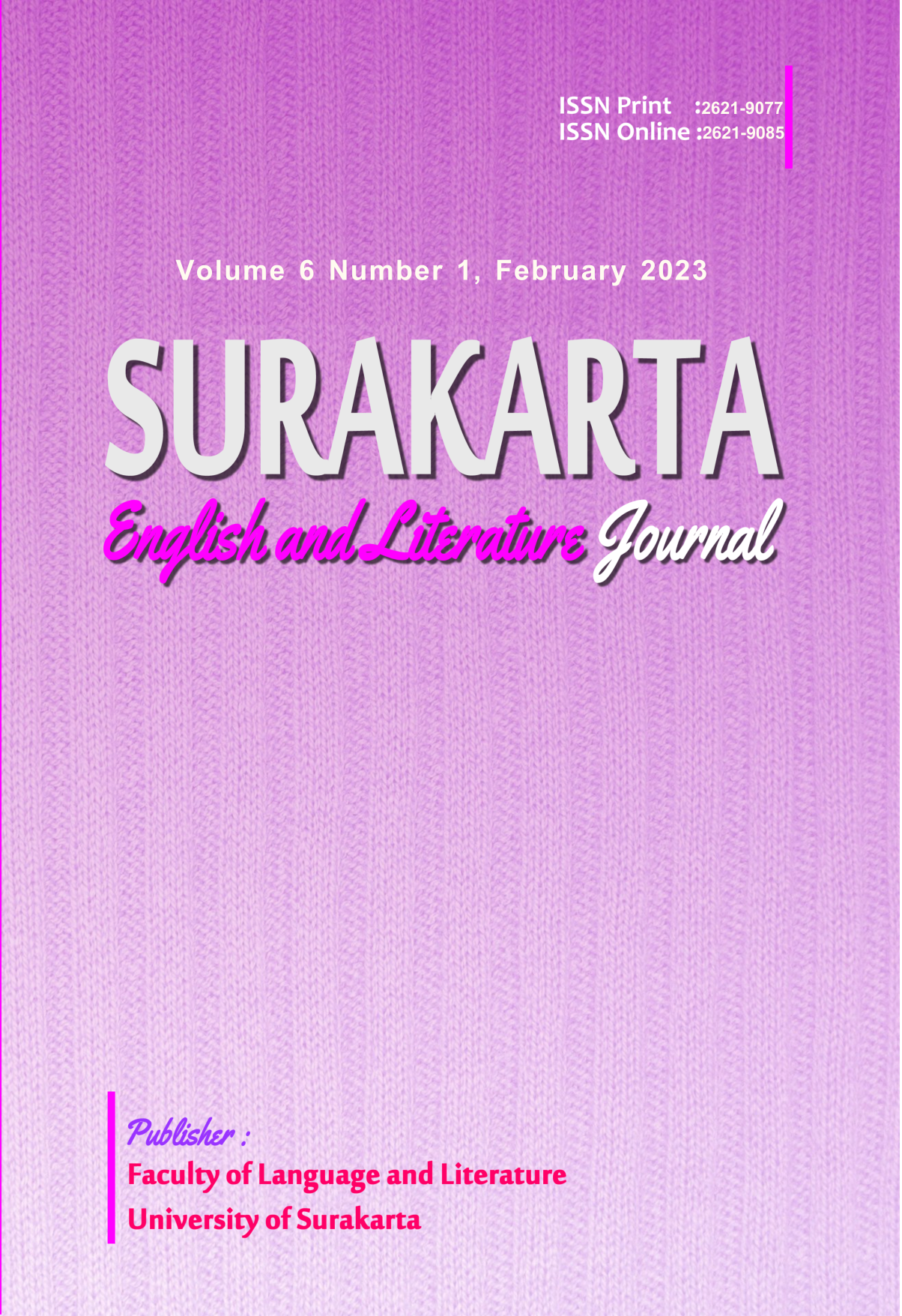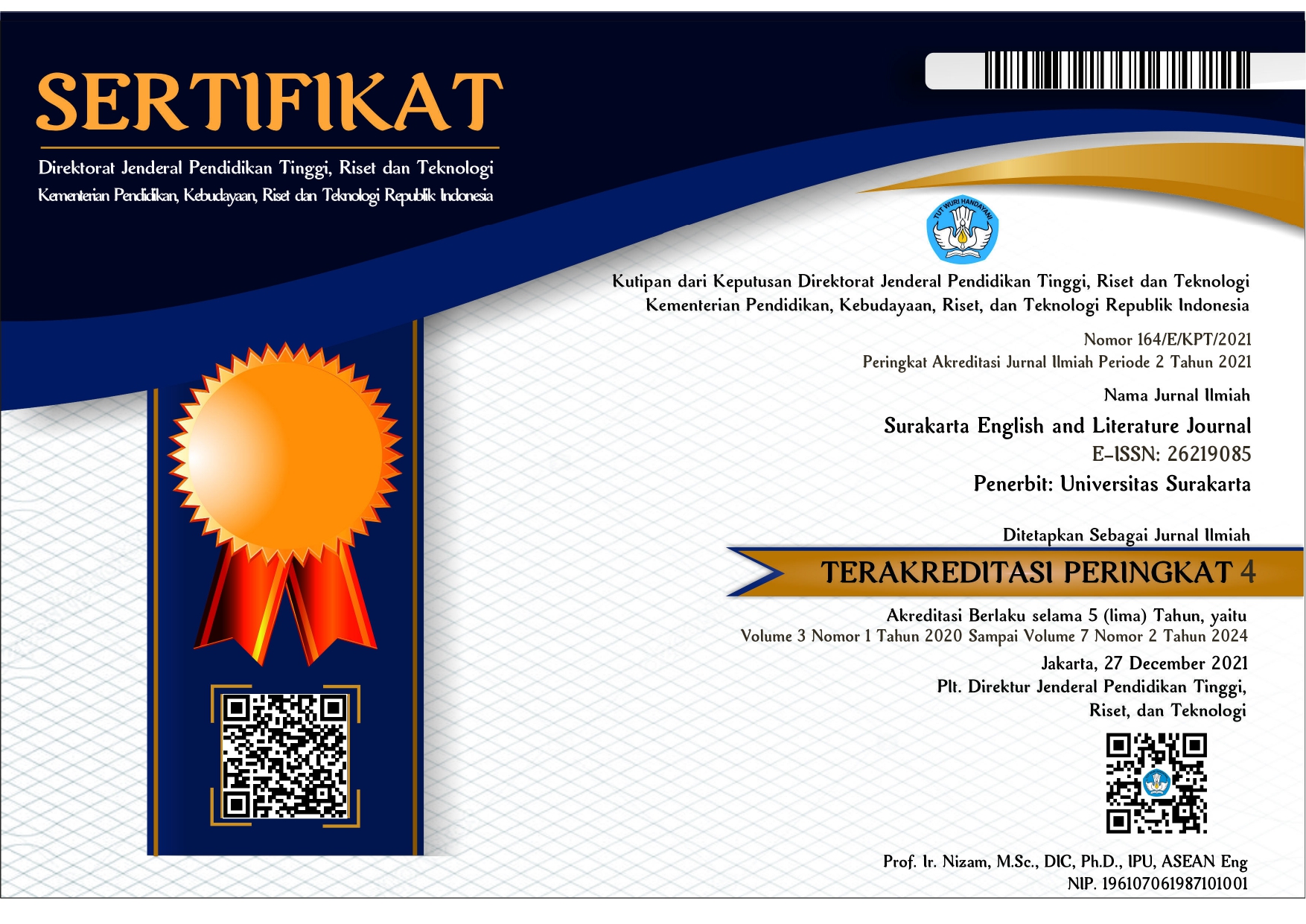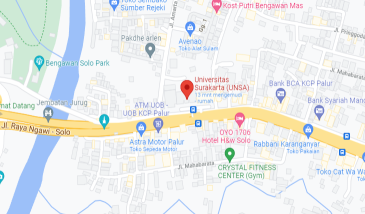The Intercultural Communicative Competence (ICC) Level of Paraprofessional Translators
DOI:
https://doi.org/10.52429/selju.v6i1.121Keywords:
ICC Level, Paraprofessional translatorsAbstract
This study investigated para-professional translators' intercultural communicative competence (ICC) level and its relation to their translations. The research design of this study is descriptive research. Twelve participants are participating in the research. The techniques of data collection employed in this study are questionnaires and tests. The results of the research show that : (1) The average ICC level of the para-professional translators is moderate level with a score of 3.0; (2) The average score of translation works from the participant with the lowest ICC level is 70; (3) the average score of translation works from the participant with the highest ICC level is 84.5; (4) the participant with the highest ICC level has a better score in the aspects of usefulness/ transfer, terminology/ style and idiomatic writing in their translation works.
References
Asiri, S. A., & Metwally, A. A. (2020). The Impact of Linguistics and Cultural Competence on Translation Quality. Journal of Language Teaching and Research, 11. doi:http://dx.doi.org/10.17507/jltr.1103.22
Bennett, J. M. (2008). On becoming a global soul: A path to engagement during study abroad. (V. Savicki, Ed.) Developing intercultural competence and transformation: Theory, research and application in international education, 13-31.
Byram, M. (1997). Teaching and assessing intercultural communicative competence. . Multilingual Matters.
Cahyaningrum, I. O. (2018). PSYCHOLOGYCAL LITERATURE TRANSLATION. SURAKARTA ENGLISH AND LITERATURE JOURNAL, 1, 31-39. doi: https://doi.org/10.52429/selju.v1i1
Colina, S. (2015). Fundamentals of translation. Cambridge: Cambridge University Press.
Daniel Tomozeiu, K. K. (2016). Teaching intercultural competence in translator training, The Interpreter and Translator Trainer. The Interpreter and Translator Trainer, 10. doi:https://doi.org/10.1080/1750399X.2016.1236557
Deardorff, D. K. (2004). The Identification and Assessment of Intercultural Competence as a Student Outcome of Internationalization at Institutions of Higher Education in the United States. Retrieved from http://www.lib.ncsu.edu/resolver/1840.16/5733
Fois, E. (2020). ELT and the role of translation in developing intercultural competence, Language and Intercultural Communication. Language and Intercultural Communication (6). doi:https://doi.org/10.1080/14708477.2020.1800025
Katan, D. (2008). TRANSLATION AS INTERCULTURAL COMMUNICATION (Vol. 1). Routledge.
Maitland, S. (2017). What Is Cultural Translation? Bloomsbury.
Masom, S. B. (2019). Translation Quality Assessment: From Principles to Practice (Vol. 1). (S. C. Joss Moorkens, Ed.) Springer International Publishing.
Mason, S. B. (2019). Translation quality assessment: from principles to practice. (S. C. Joss Moorkens, Ed.) Machine Translation: Technologies and Applications, 1, 269–277. doi:https://doi.org/10.1007/s10590-019-09241-w
Mirzaei, A., & Forouzandeh, F. (2013). Relationship Between Intercultural Communicative Competence and L2-Learning Motivation of Iranian EFL Learners. Journal of Intercultural Communication Research. doi:https://doi.org/10.1080/17475759.2013.816867
Nguyen, T. M. (2021). Translators’ Intercultural Communicative Competence in Translation Quality Assessment: A Perspective from Functionalism. The 9th OpenTESOL International Conference 2021. Ho Chi Minh City Publishing House Economics. Retrieved from http://opentesol.ou.edu.vn/uploads/5/9/9/8/59980917/proceedings_of_the_9th_opentesol_international_conference_2021.pdf
Pollastri, A. P. (2021). Intercultural Communication at the Heart of a Translation Quality Assessment Model. Journal of Translation Studies, 1, 141-154. doi:https://doi.org/10.3726/JTS012021.8
Robin, C. (2015). Introducing intercultural communication into the teaching of translation. Russian Journal of Linguistics, 155-173.
Saptaningsih, N. 2.-3. (2018). Analysis on the Translation of Technical Terms in Disaster Management: a Case Study in News Translation by Novice Translators. Surakarta English and Literature Journal, 31-39. doi:http://dx.doi.org/10.52429/selju.v1i1.206
Schaffner, C. (2003). Translation and intercultural communication: similarities and differences. Studies in communication sciences, 79-107.
Sehan, Z. (2010). Five Translation Competencies. Zainurrahman’s Personal Journal. doi:10.13140/RG.2.2.15609.36961
SEVIMEL-SAHIN, A. (2020). A survey on the intercultural communicative competence of ELT undergraduate students. Eurasian Journal of Applied Linguistics, 141-153. doi:https://doi.org/10.32601/ejal.775793
Snell-Hornby, M. (1988). Translation Studies: An integrated approach. John Benjamins Publishing Company. doi:https://doi.org/10.1075/z.38
Yarosh, M. (2015). Translator Intercultural Competence: A Model, Learning Objectives, and Level Indicators. . DOI:. Handbook of Research on Teaching Methods in Language Translation and Interpretation. doi:10.4018/978-1-4666-6615-3.ch010

Downloads
Published
How to Cite
Issue
Section
License
Copyright (c) 2023 Allvian Susanto, Barans Irawan Palangan, Afi Normawati

This work is licensed under a Creative Commons Attribution-ShareAlike 4.0 International License.
Licensing for Data Publication
-
Open Data Commons Attribution License, http://www.opendatacommons.org/licenses/by/1.0/ (default)
-
Creative Commons CC-Zero Waiver, http://creativecommons.org/publicdomain/zero/1.0/
-
Open Data Commons Public Domain Dedication and Licence, http://www.opendatacommons.org/licenses/pddl/1-0/













